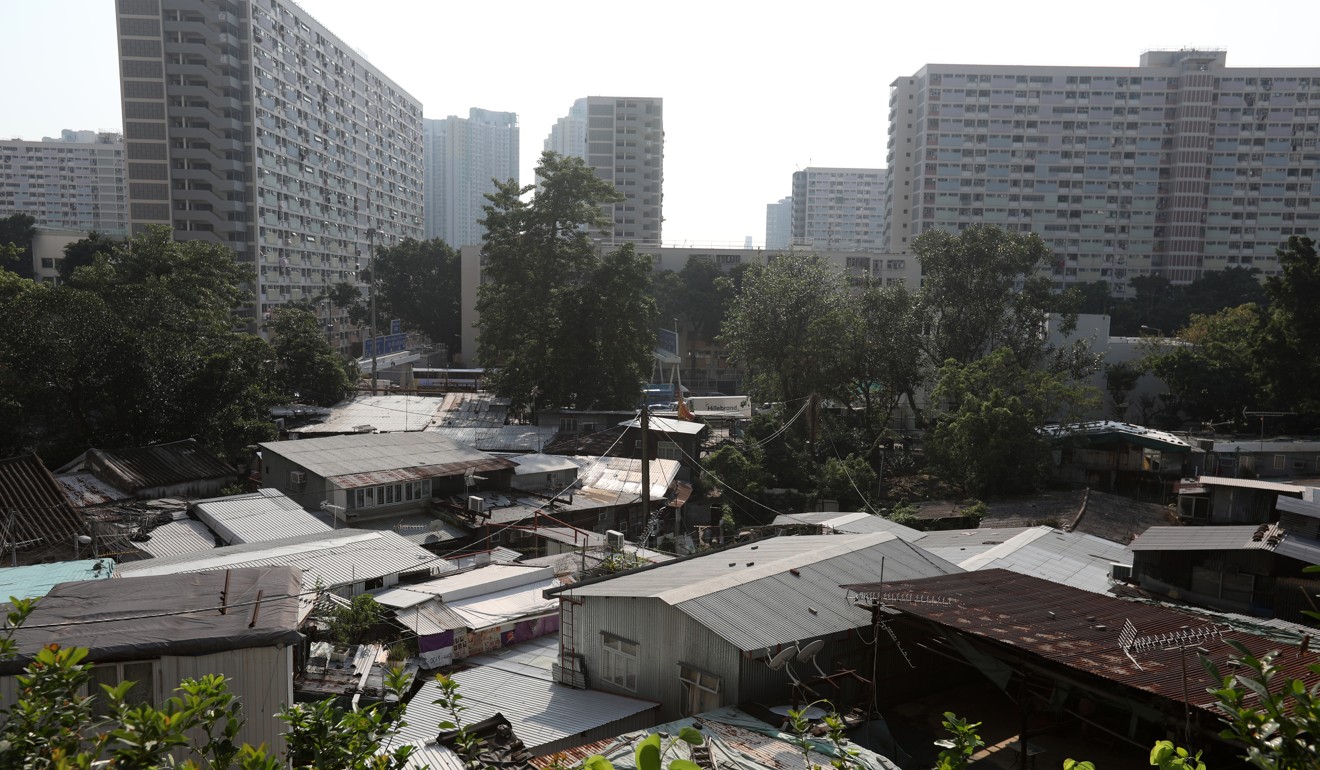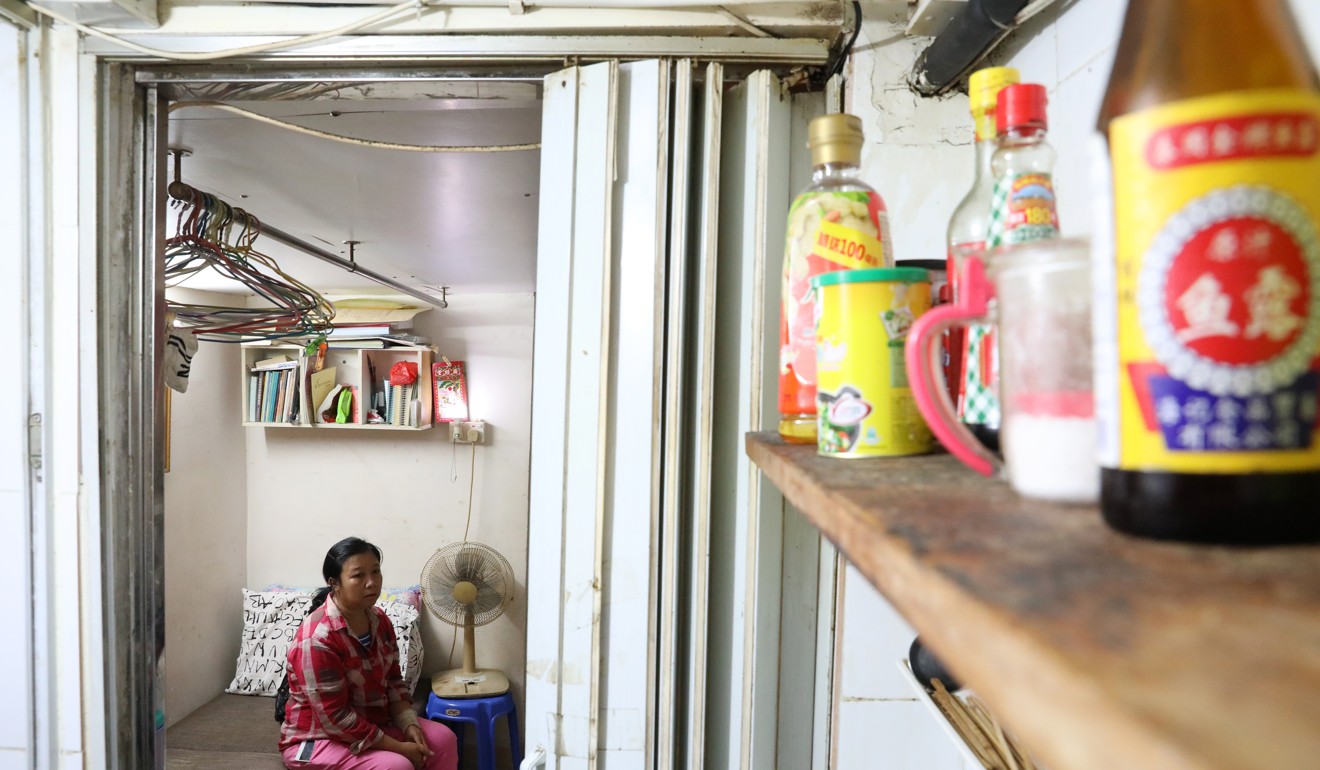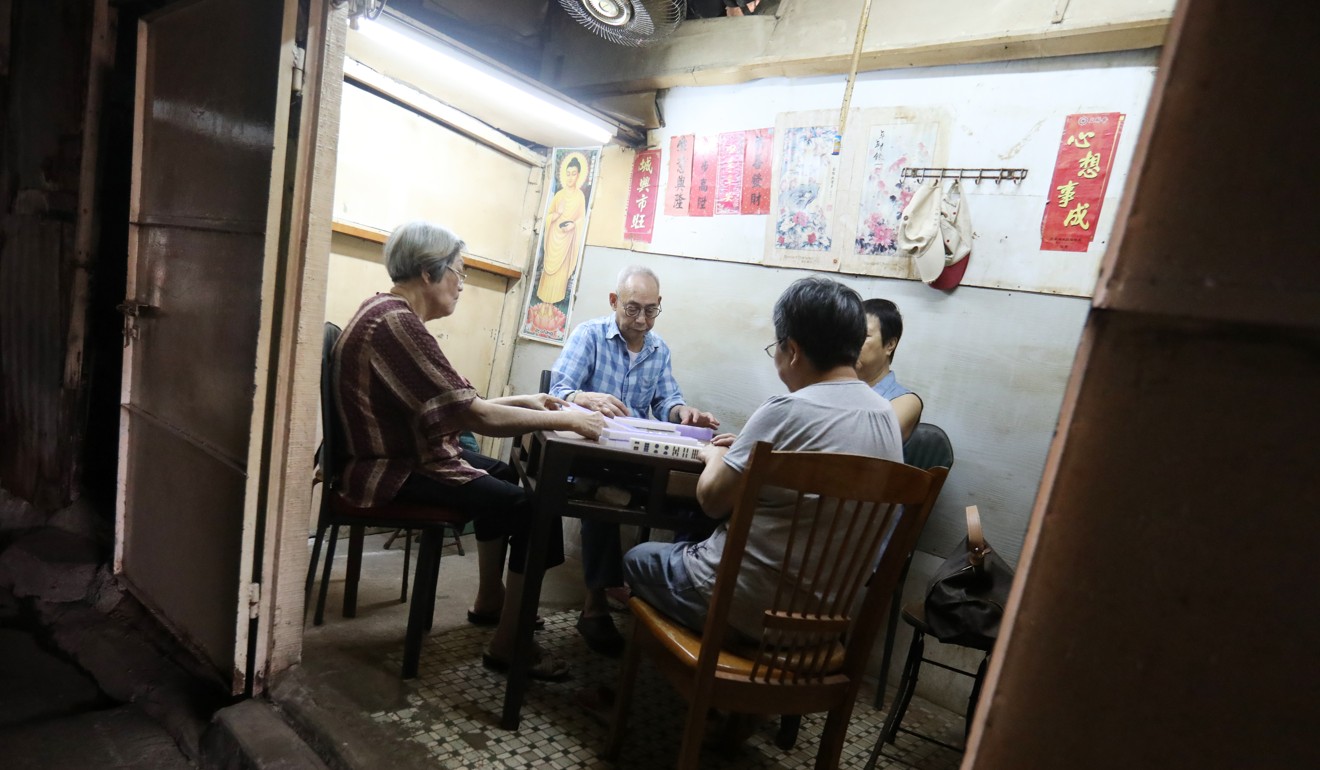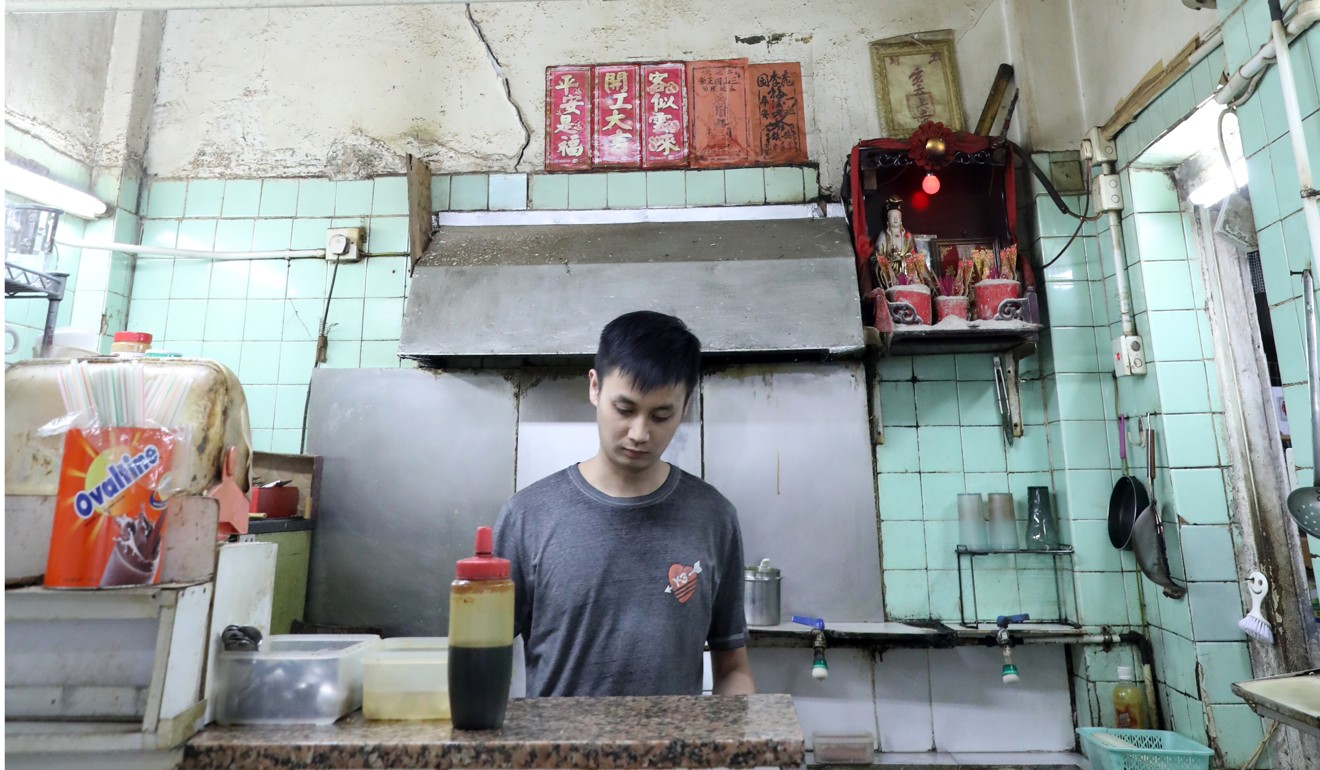
When a Kowloon squatter village goes: new homes for some, anxiety for others uncertain of right to compensation
- Only those who registered as squatters in 1982 are assured of compensation package
- Villagers who bought homes illegally or rent subdivided units worry they’ll get nothing
Chou Chiu-soon, 73, wakes up at 4am to leave his home in the New Territories to get on a night bus that takes him to Ngau Chi Wan village in Kowloon.
By 7am, he opens the Po Fook Cha Chaan Teng, a traditional cafe serving beef and macaroni soup, coffee and tea to workers and residents from the area looking for breakfast.
Everyone calls him “Boss Chou”, and this has been his daily routine for more than half a century, since the day he first arrived to help his father, who opened the cafe.
All this is set to change as Ngau Chi Wan, a compact cluster of small shops, squatter huts and narrow streets, has been earmarked by the government to make way for public housing.

The village, next to Choi Hung MTR station, is expected to go within the next decade.
“My father started the business that raised our family, I simply have no reason to close it,” says Chou. “But if the cafe is not terminated by me but by the government, then I can count it as a happy retirement.”
The urban village, occupying just two hectares, has 266 registered squatter structures. The government will be able to build 2,400 public flats there, according to the policy speech delivered by Chief Executive Carrie Lam Cheng Yuet-ngor last month.
She said residents would receive compensation and be rehoused. Two similar Kowloon squatter villages, Cha Kwo Ling and Chuk Yuen, have also been identified for redevelopment.
But not everyone in Ngau Chi Wan is as sanguine as Boss Chou about what the future holds.
He can look forward to being compensated, with a public rental flat as well as cash subsidies for relocation. This is because he registered himself as a squatter owner in 1982, when the government carried out a citywide survey of such premises, allowing those who registered to “temporarily exist” until the site was needed for a new purpose.
But since the sale of registered squatter property is forbidden, many who moved into the village after 1982 after buying units on the black market or renting in subdivided houses, are regarded as illegal tenants and owners, and face an uncertain future.
‘We spent all our savings on the flat’
The village’s “squatter huts” are a mix of two and three-storey cement buildings with sheet-metal roofs, built irregularly along narrow alleyways. Some have shops on the ground floor while others are houses that have been subdivided into tiny flats.
Some families have been here for decades while others moved in during the past 10 years. They include cleaners, construction workers and retirees.
Vicey Wong, in her 40s and unemployed, bought her 500 sq ft unit a decade ago on the black market, in a transaction common in squatter areas. It was one of three subdivided units of a house.
“We just paid and moved in, and everything was done without proper legal documents,” said Wong, who spent HK$500,000 for the unit she shares with her sister.
The people who own the two-storey house next door, also new buyers like her, divided it into eight rooms that are rented out.
She is worried people such as her, who are not registered, would not receive appropriate compensation when the time comes to move.
“We spent all our savings on the flat,” she said. “If not for the redevelopment, we wouldn’t have to move.”

Haphazard ownership and tenancy arrangements aside, the lack of proper management has left Ngau Chi Wan in a sorry state, with rats and cockroaches seen running among the village houses, and an odour rising in some of its alleys.
Cleaner Yang Jian-hua, 49, who rents a windowless 100-square-foot space in a subdivided flat for her family of four, is anxious about the future. She has been paying HK$4,500 a month for the past eight years.
“I am not sure where we can go if we are asked to leave. Probably somewhere more expensive and smaller,” said Yang, who lives there with her jobless husband and their two children aged 15 and 23.
“The best is to allow us to move to public housing, but we are not the owners.”
Under the current policy of the Lands Department, households which can prove they have been living there since 1982 will get a public rental flat without having to undergo a means test.
Those who have lived in a registered squatter house for at least two years will be allotted a public housing application number when the government announces the land acquisition. A one-time removal allowance will also be granted.
District councillor Wu Chi-kin, who is assisting the residents, said unregistered ownership and subdivided tenancies are a hidden problem in villages like Ngau Chi Wan.
“They are considered illegal, and the flats have been divided for years. We are not sure if they will be compensated,” he said.
“Redevelopment can improve the environment and provide more housing, but for those living there, there is no promise that their own living environment will improve too. Tenants may have no choice but to move into other smaller subdivided flats.”
Wu, a full-time councillor from the pan-democratic camp, has represented the area for the past four years and is seeking re-election in the district council polls on November 24. He is facing a challenge from So Ka-lok, a community organiser from the Hong Kong Federation of Trade Unions.

‘Case-by-case approach’ for difficult cases
Replying to questions from the Post, the Development Bureau said squatter structures built on government land would be redeveloped, whereas adjacent areas with houses built to compensate residents affected by the construction of the Choi Hung MTR station in 1970s, would not be involved.
“The government has no intention to clear the private village houses within the resite area,” said a spokesman. A study on the redevelopment scope will be completed in late 2021.
Stanley Wong Yuen-fai, chairman of the subsidised housing committee under the Housing Authority acknowledged the worries of village residents such as Yang, who rents, and Wong, who bought her unit.
“Tenants who rent a flat in the black market might not be eligible for public housing, as this might be unfair to those already in the long queue now,” he said.
“As for illegal owners, I guess it depends on whether the original owner exists, and whether they can prove they have been living there for a long time. It has to be determined on a case-by-case basis.”

For now, it is business as usual at Po Fook Cha Chaan Teng.
Stepping into the cafe is like entering a time machine. The clock on the wall has been hanging there since 1964, and is still ticking. The menu, also on the wall, is handwritten. The old wood tables and chairs look like they have been there forever. The dilapidated metal roof is supported by a wooden beam.
“I came here with my father when I was 17,” Boss Chou said.
At that time, Choi Hung Estate was being built opposite the village. The public housing estate has recently become a tourist magnet, renovated and painted in rainbow colours.
“My father saw business opportunities with the new neighbours, and he was right,” Chou said. “In 1964, a milk tea cost only HK$0.25. Now it’s around HK$12.”
Married with three children, he said he raised his family from the income he earned running the cafe. His wife and youngest son now help out at the cosy restaurant every day.
After decades of seeing people come and go, Chou is practical about the change coming to the village.
“It will be a pity to see everything gone forever, but I have learned to stay calm,” he said. “After all, you cannot stop the government.”
This is the first of a two-part series on urban squatter villages facing redevelopment. Next week, the Post visits historic Cha Kwo Ling village.

